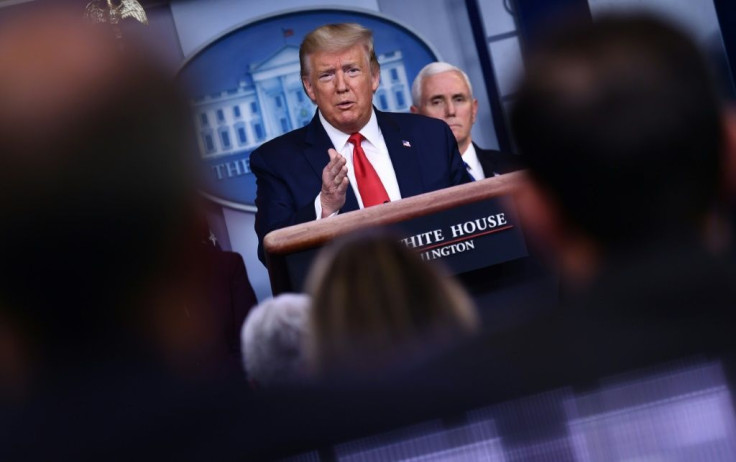Trump Closes Border With Mexico To Stem Spread Of Coronavirus To Nonessential Travel

KEY POINTS
- The borders with Mexico and Canada close to nonessential travel this weekend
- Undocumented immigrants will be repatriated to their countries of origin to keep COVID-19 from spreading in detention centers
- The State Department is working to repatriate Americans stranded overseas
President Trump Friday announced the border with Mexico would be closed to nonessential travel but would remain open to the flow of goods and commerce. On Wednesday, a similar action was taken with Canada. Both closures take effect this weekend.
The government also is ramping up efforts to keep undocumented immigrants out of the country, announcing they would be repatriated to their countries of origin quickly to stem spread of COVID-19.
"We are treating our northern and southern borders equally," Trump told a White House briefing on the coronavirus, which has infected more than 14,600 Americans and killed at least 205.
Trump said no consideration is being given to a nationwide lockdown.
"We're working with the governors and I don't think we will ever find that necessary," Trump said.
Secretary of State Mike Pompeo, like the president referring to the pandemic as the "Chinese virus," praised both Mexico and Canada for their cooperation. On Thursday, the State Department raised the level of its travel advisory, encouraging all Americans not to travel internationally.
Chad Wolf, acting secretary of Homeland Security, said the border closures do not apply to legitimate trade. He said undocumented immigrants would not be sent to detention centers where the virus could spread quickly and instead would be taken to air bases. The repatriation process, which normally takes weeks, would be accomplished much more rapidly, Wolf said.
“We are working with Mexico to send additional populations there, as well,” Wolf said, adding that the immigrants are from 122 countries.
Pompeo said special consideration would be given to farmworkers crossing into the U.S. from Mexico as part of the effort to keep commerce alive. He said the State Department and Homeland Security would work together.
When it comes to Americans returning from abroad, Pompeo said the State Department has set up a special repatriation team, but the full scale of the operation has yet to be determined.
“We’ll try to get everybody back as fast as we can,” he said, adding he could not say now long the border restrictions would last.
He said people would be transported on a combination of private and commercial flights, and the State Department is working with Defense to arrange for transportation on military flights where space is available.
Since the U.S. started screening overseas travelers last weekend, some 200,000 have been tested, Pompeo said.
Pompeo also warned against disinformation accusing the U.S. military of introducing the virus and on lockdowns, urging Americans to get information only from reliable sources. He said he has spoken to officials in Russia, China and Iran about the issue and told them “to knock it off.”
Health and Human Services Secretary Alex Azar said China first alerted the U.S. about the virus April 3.
Pompeo said China had a “special obligation” to alert the world about what was happening and to make data sets available for study.
“We’re in a live exercise to get this right,” Pompeo said. “This is critical. It is not about political games or retribution. It’s about keeping people safe.
“Every moment of delay … creates risks to people all around the world.”
© Copyright IBTimes 2024. All rights reserved.





















